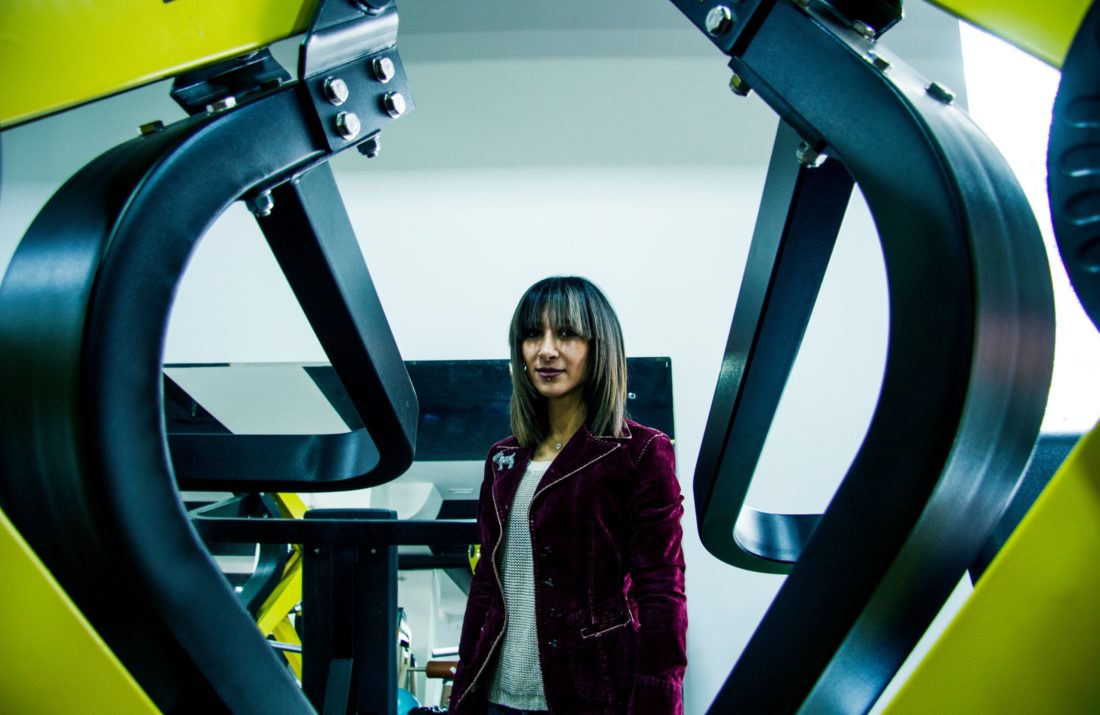Ia Udzilauri, 30, Tbilisi
„Since my school age, I have been forced to choose between my behavior and my aspirations. I have been asked all the time how one can be into studies and fun at the same time. I faced this stereotype later, in my student years too, when along with doing my PhD thesis, I decided to become a fitness athlete.
I hope I will resume work on my PhD thesis about a criminal subculture soon. I guess, my favorite lecturers were disappointed when I announced one day that I was going to take a year off as I needed to spend more time in the gym. They wondered if I was not wasting my talent and abilities.
This stereotype is interesting too – an athlete and a book to be seen as incompatible as night and day. I don’t understand why I have to choose only one… Why cannot you have multiple interests and be good at everything.
I guess, many people don’t get me when I assert that there is a close link between my profession and fitness. The difference is that as a researcher I was only just another observer, but now, in the gym, I am part of the process, putting in practice my theoretical knowledge. The differences between identities are more palpable here and you can feel yourself how the stereotypes are formed and how they are influencing the culture.
I started to take interest in fitness as sports six years ago when I divorced my husband. My initial motivation was simple – to get back in shape after pregnancy and, probably, to escape from everyday stress into another world. Sports demand tremendous amount of work and willpower and I guess I wanted to prove myself that I was up to the task. However, I became so immersed in it that I participated in competitions and even won a few times. Fitness has become part of my life, and the best thing about it is that it has made me stronger, healthier and freer. Here I discovered another stereotype – a woman’s body is considered a tender and vulnerable anatomy and the people found my muscly build unacceptable. Complete strangers have posted mocking and scornful comments to me.
Another stereotype, not entirely unexpected but still disappointing, was that after divorce I was seen as an easily accessible woman who would readily agree to sex.
The influence of stereotypes is blatant all over the gym. There are standards dictated by the culture and we are trying to fit into them. For example, at present it is very fashionable to be skinny and have a flat tummy. The latest trend is a big and lifted butt. These standards are reproduced by the media. Many successful professional women come to me who, despite a busy schedule, spend a lot of time in the gym. I mean, if there is a natural desire to be stronger and healthier, it is great, however, in most cases it is difficult to distinguish what is a natural state and what is an alternative reality dictated by stereotypes and cultural construct. In order to have a large and lifted butt, you need to work out for at least two years 4-5 days a week… When you are obsessed with this idea, it must be stressful for women. It puts me in a difficult position too: on the one hand, I have to advertise a fit and strong body and on the other hand, oppose to objectification of a woman’s body. I balance this out by telling everyone that fitness is a road to becoming stronger, and healthier, with a better hormone balance, i. e. to being happy.
Women often fall victim to unethical marketing of plastic surgery. Beauty industry wraps its products so that women are not informed of the risks inherent to such surgeries. I’m generally not against aesthetic surgery at all, but it should not include defrauding women and putting their health at risk.
I have never hidden the fact that I have had breast implants. It was necessary for the competitions to keep to the proportions. To be honest, I really wanted it too. Yet, I was not clearly explained the risks. By the way, after publicizing of the surgery, everyone seemed to view me as a walking object, fake boobs, and I’m still suffering the repercussions of such hostility.
The most heartbreaking part is that despite my success in my line of activity, as an athlete, fitness instructor and trainer of fitness instructors, in the media I am still referred to as “someone’s ex-wife”, while the interviews with and news about men are mostly focused on their success and professional and social achievements. It is unfortunate that despite my hard work, I am still downgraded to the status of “somebody’s wife”.

